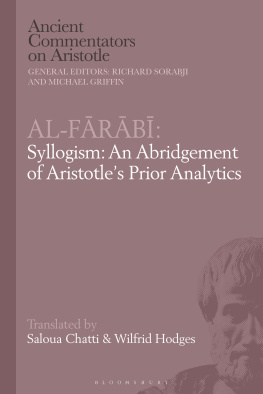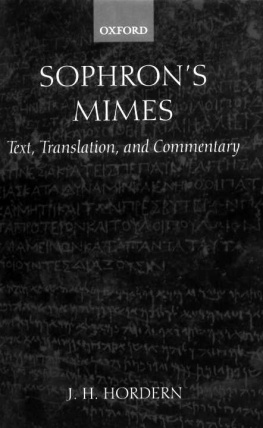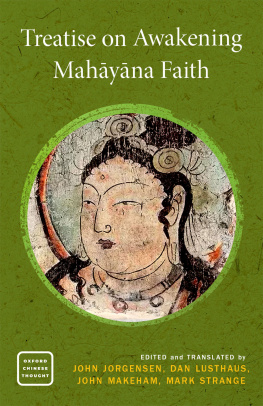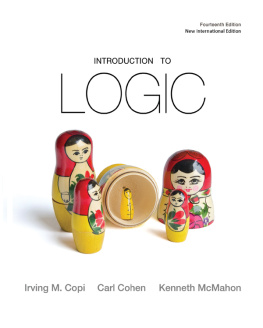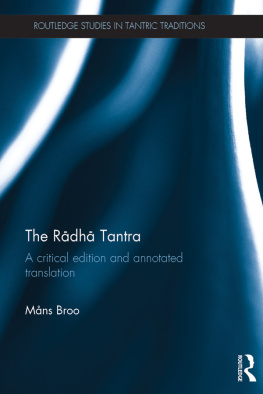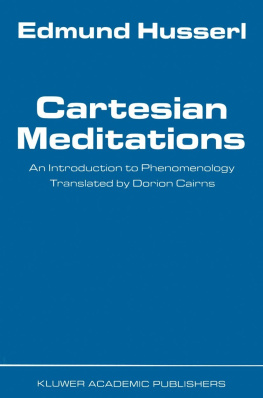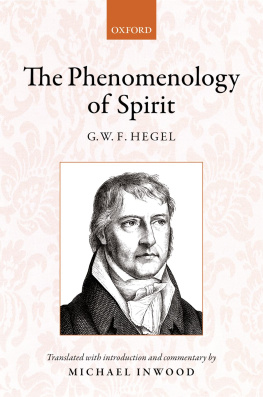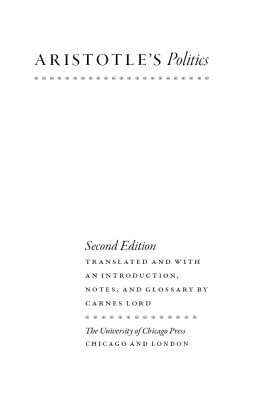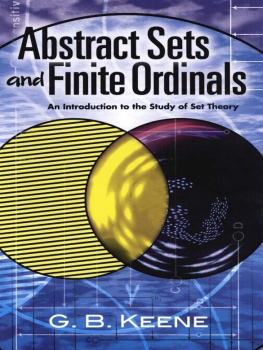TREATISE ON CONSEQUENCES

|
Medieval Philosophy |
TEXTS AND STUDIES |
SERIES EDITOR |
Gyula Klima
Fordham University |
EDITORIAL BOARD |
Richard Cross
Brian Davies
Peter King
Brian Leftow
John Marenbon
Robert Pasnau
Giorgio Pini
Richard Taylor
Jack Zupko |

Copyright 2015 Fordham University Press
All rights reserved. No part of this publication may be reproduced, stored in a retrieval system, or transmitted in any form or by any meanselectronic, mechanical, photocopy, recording, or any otherexcept for brief quotations in printed reviews, without the prior permission of the publisher.
Fordham University Press has no responsibility for the persistence or accuracy of URLs for external or third-party Internet websites referred to in this publication and does not guarantee that any content on such websites is, or will remain, accurate or appropriate.
Fordham University Press also publishes its books in a variety of electronic formats. Some content that appears in print may not be available in electronic books.
Visit us online at www.fordhampress.com.
Library of Congress Cataloging-in-Publication Data
Buridan, Jean, 13001358.
[Tractatus de consequentiis. English]
Treatise on consequences / John Buridan ; translated and with an introduction by Stephen Read ; editorial introduction by Hubert Hubien. First edition.
pages cm. (Medieval philosophy: texts and studies)
Includes bibliographical references and index.
ISBN 978-0-8232-5718-8 (cloth : alk. paper)
1. LogicEarly works to 1800. 2. Proposition (Logic) 3. Logic, Medieval. 4. Syllogism. I. Read, Stephen, 1947 translator. II. Title.
BC60.B8713 2014
160dc23
2014002167
Printed in the United States of America
17 16 15 5 4 3 2 1
First edition
CONTENTS
First, I must express particular gratitude to members of the Medieval Logic Reading Group at the University of St Andrews, in particular Catarina Dutilh Novaes, participating mostly via the Internet, and Spencer Johnston, my PhD student. Those meetings, between 2008 and 2012, were invaluable, as we worked through the text and the translation line by line, even word by word.
I am also grateful to the referees, in particular to Terence Parsons, for their often very detailed comments on the translation and the Introduction. Nonetheless, if any inaccuracies or confusions remain, I must take full responsibility for them.
I must also acknowledge my debt to other colleagues at St Andrews and to the very supportive research environment in the Department of Philosophy and within the Arch Philosophical Research Centre. Much of the work was done during the Foundations of Logical Consequence project, funded by the Arts and Humanities Research Council of the United Kingdom. Among other colleagues, Sarah Broadie often gave me valuable advice.
I am also grateful to the librarians at the University of Lige and at the Vatican Library (Biblioteca Apostolica Vaticana) for providing me with photocopies of the manuscripts containing Buridans Tractatus de Consequentiis .
I am grateful to Professor Hubiens daughter, Mme Sophie Hubien, for permission to include an English translation of his Editorial Introduction to his 1976 edition of the Latin text.
Stephen Read
TREATISE ON CONSEQUENCES
STEPHEN READ
1. John Buridan
John Buridan was born in Bthune in Picardy, in northern France, in the late 1290s. He spent his entire academic career in the arts faculty at the University of Paris, dying around 1360. In this regard, his career was unusual. Most other scholars either joined one of the religious orders (John Duns Scotus and William Ockham were Franciscans, Paul, first conclusion).
Our first firm evidence for Buridans career is when he was elected rector in 1327, in charge of all teaching at the University of Paris, a responsible post with a new incumbent elected every three months. He held it from mid-December 1327 until mid-March 1328. He must, therefore, have started his university studies some five or ten years earlier, for the rectorship
The University of Paris was divided by the origins of its students into four nations, the French comprising those from France roughly south of Paris, Spain, and Italy; the English (later English-German) made up of those Albert shares certain doctrines with Buridan, but he has much more in common with English masters of the time such as Burley and Ockham and is highly critical of Buridan on several counts.
1.1. Buridans Works
By the time Albert arrived in Paris in 1351, Buridan had been teaching and writing there for also seems to have had a separate existence. The treatises on propositions and on syllogisms will particularly concern us in relation to our study of the Treatise on Consequences .
Hubien, in his introduction to his edition of the Latin text, dates the Treatise on Consequences to 1335. His argument is based on rather amusing internal evidence concerning a particular logical example Buridan uses. famous as a scourge of the Cathars, a Cistercian (whose monastic cloak was consequently white), created cardinal in 1327 and elected Pope Benedict XII in December 1334. He had been a fierce opponent of Ockham in the late 1320s, when Ockham was summoned to the papal seat at Avignon to answer charges of heresy, and of the terminism that Ockham represented and Buridan admired.
Hubien is surely right in his identification of the white cardinal. It would be a brave, indeed foolhardy, cleric, however, who made quite so obvious his distaste for the current pope. We certainly have a terminus a quo in the election of Benedict XII; but would Buridan include this example before Fourniers death in 1342? On the other hand, the treatise also contains evidence of a relatively early composition in Buridans career in his discussion of the liar paradox. Buridans diagnosis of the liar paradox has been much discussed in the past sixty years, at least since Moodys Truth and Consequence in Medieval Logic of 1953. It has become clear that his view evolved over the years. In his Sophismata he describes a possible solution to the liar paradox as one he used to hold, a position we find in the Treatise on Consequences .
The liar paradox is an example of a type of proposition called an insoluble by the medievals. They were particularly difficult sophisms. For example, suppose I say, The proposition which I am uttering is false (see Book I, contention that Buridans treatise belongs to the mid-1330s.
However, Zupko argues that Buridan would not have found Wodehams version of the doctrine objectionable. 1340s, before Rimini provoked Buridan to give voice to his opposition to the complexe significabilia .
Buridans version of terminism, a more temperate and Aristotelian, and less Augustinian version than Ockhams, had a huge influence in the century and a half following his death. Many of Buridans works were printed when the age of printing arrived in the late fifteenth century: the commentaries
The text of the Treatise on Consequences was published in 1976, when Hubert Hubien produced a meticulous edition of the Latin text, based on the three surviving manuscripts and the incunabula, together with a brief introduction. here follows Hubiens text with only a very small number of changes made after consulting the manuscripts. Hubiens introduction, originally in French, is also translated here into English.
Next page

